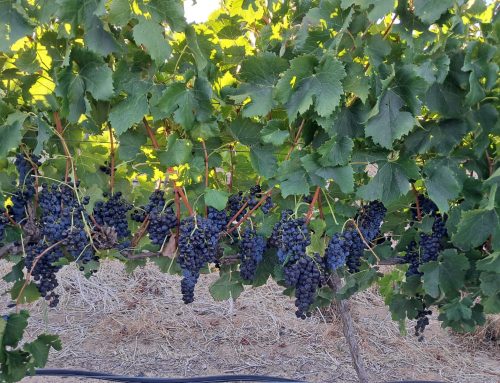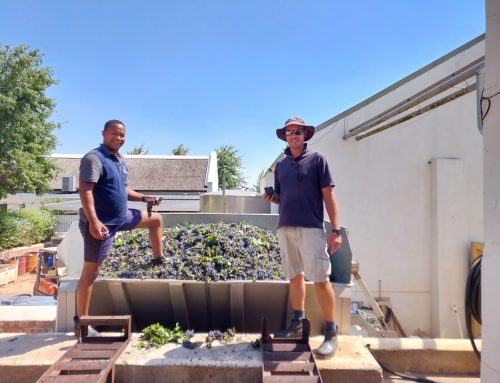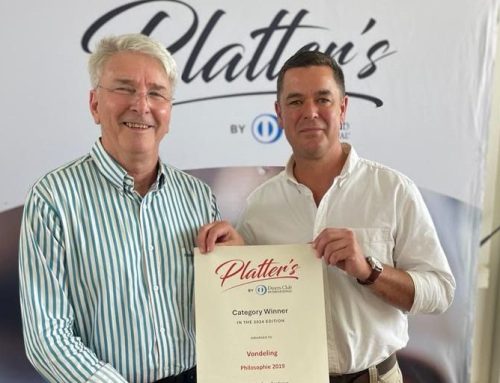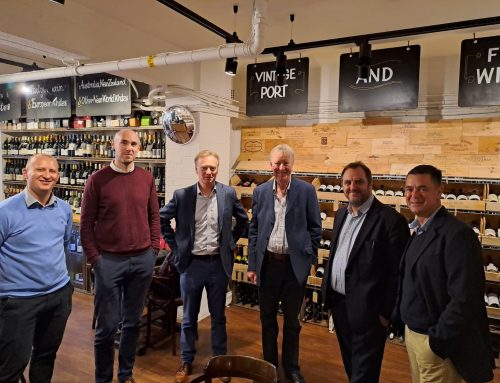Sustainable wine farming has become an important pillar in the wine industry, not only because of climate change and economic growth but also because of the ever-increasing need for conserving our natural resources.
Sustainability in the context of South Africa’s wine industry refers to the continuous maintenance or support of wine farming over time.
This includes striving to reduce the environmental footprint of wine farms as well as conserving resources as best we can; however, sustainability doesn’t end here. It depends on you, too.
Being a responsible consumer in the wine industry means a lot more than simply drinking wine responsibly.
It also means understanding and caring about how your wine is produced and where those farms are located.
Climate change, biodiversity, soil quality and pollution are all some of the many factors directly linked to our collective sustainability efforts.
Vondeling Wines believes that if we are intentional about the way that we produce and consume wine, these efforts will have a ripple effect for future generations to reap the rewards.
Introducing the South African Wine Industry
Situated in the narrow viticultural zone of the southern hemisphere, the Cape Winelands has a predominantly Mediterranean climate with plenty of mountain slopes and valleys to form the perfect conditions for wine grapes to thrive.
Within this climate and these conditions, the Cape offers wine grapes long, warm summers and wet winters for optimal growth.
Liberated in 1994 by the birth of democracy, the South African wine industry has become increasingly successful over time with exports reaching 388 million litres in 2021, according to Wines of South Africa (WOSA).
Currently, more than 2,600 farmers cultivate around 90,500 hectares of vineyards, and the wine industry both directly and indirectly employs around 270,00 people.
The South African wine industry is supported by various organisations such as Elsenburg Agricultural College, ARC-Nietvoorbij, and the Department of Viticulture and Oenology (DVO) at Stellenbosch University.
With this, it is also currently in eighth place as far as international wine production goes with 4.1% of all production in the world.
However, although successful, the industry has been heavily affected by climate change and production efforts in recent years that do not value conservation and grape sustainability.
Our wine industry has experienced a multitude of challenges resulting from years of severe drought and low water supplies, along with our country’s damaged economy and the ever-increasing demand by consumers for lower prices.
With these challenges, conventional wine farming in the agricultural sector has also suffered due to climate change, and production efforts here that favour harsh chemicals and other pesticides in an attempt to boost mass production have had little regard for conservation and sustainable wine farming in our country, causing further damage to our biodiversity and other natural resources.
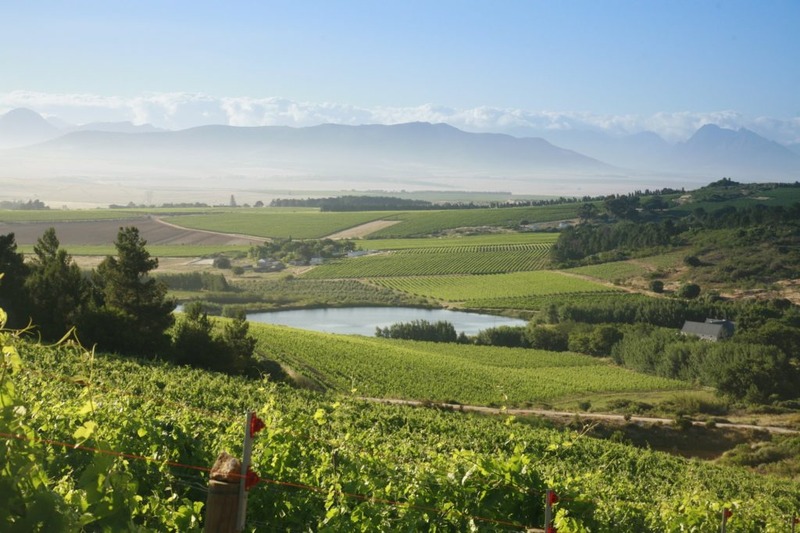
Conventional vs Sustainable Wine Farming
Conventional farming, in our opinion, includes methods that can be considered “dead” farming.
By opting to spray weeds and adverse insects with harsh chemicals and pesticides, for instance, conventional wine farmers attack the entire block of vines and not just the ones infected.
In doing so, they essentially purge the block of all good insects along with the bad and they poison the soil.
This is a method of farming that can have a devastating impact on both our biodiversity and our soil for future generations which should not be taken lightly.
As wine farmers, we need to work on sustainability together to constantly improve our soil.
Otherwise, our roots will not produce quality wine grapes for years to come and wine farming will be at significant risk of ceasing to exist.
To continue to produce quality products, decades of hard work and sacrifice in the wine industry depend on sustainable farming practices.
It is our responsibility to make a change, even though sustainability is largely a political issue.
We need to acknowledge these challenges and the damage done to find our own solutions.
Sustainable wine farming is as the name suggests – to be sustainable, to farm with Mother Nature and not against her.
Nature can be austere but it can also give back in abundance.
By valuing conservation and grape sustainability in the wine industry, farmers can expect generous harvests and consistent quality each year without uncertainty and precariousness.
Whether farmers or consumers, we all need to support sustainable wine production.
Wine Industry Challenges In South Africa
While there is a multitude of challenges at play in our industry, we would like to focus on what can be considered the top three wine industry challenges in South Africa, namely – climate change, water conservation, and sustainability.
Climate change and water and pest management are huge influences on our country’s biodiversity and wine grape sustainability; therefore, special emphasis has to be placed on our dire need for conservation.
1. Conservation
Conserving our biodiversity is a critical step toward the sustainability of our wine industry.
Biodiversity refers to the various plant species and wildlife that inhabit an area, particularly all the species, genes and ecosystems that allow life to persist over time.
When biodiversity goes unscathed, species and ecosystems are resilient (meaning that they can adapt to environmental changes over time).
However, when biodiversity is damaged, nature responds unpredictably (meaning that planning production for wine farmers and protecting our natural resources can become incredibly difficult to manage).
2. Climate Change
Climate change has devastating effects on our land’s biodiversity as well as our country’s natural resources such as our groundwater supply.
The agricultural sector, for instance, is a large source of greenhouse gases (GHGs) in South Africa.
It is a sector that requires a large amount of water for crops and livestock, and it contributes to climate change through activities such as land use change (e.g. deforestation), agrochemical application (e.g. the use of harmful pesticides and fertilisers) and the burning of fossil fuels.
3. Land Use Change
Land use change in the agricultural sector is a process by which the natural landscape is transformed to create space for planting additional crops and accommodating additional livestock.
This is a significant environmental issue because deforestation is required to transform the land, impacting our biodiversity along with our atmosphere due to a large amount of GHG emissions.
This process also requires plenty of natural resources to implement and it causes air pollution, water pollution and soil erosion.
4. Agrochemicals
With the above, agrochemical applications such as pesticides and fertilisers are likewise impacting our ecosystems in agricultural sectors, contributing to climate change and risking the sustainability of our industry.
Agrochemicals do a substantial amount of damage to both our land’s biodiversity and our soil because not only do these chemicals break the health of our soil down but they also destroy the good insects along with the bad.
In essence, unsustainable practices in the agricultural sector such as land use change, agrochemical application and the burning of fossil fuels eliminate the insects that are needed for general plant health and optimal growth, they damage and poison both our precious soil and our atmosphere, and they eradicate a large portion of our land’s biodiversity.
Once again, it is crucial to remember that when biodiversity is damaged (i.e. when harm is done to the well-being of our species, genes and ecosystems), nature responds unpredictably.
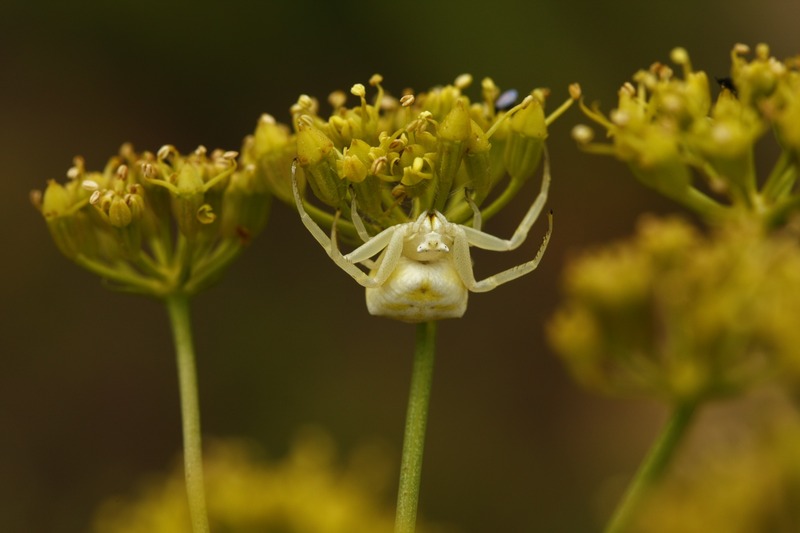
5. Sustainability
Sustainable Wine South Africa (SWSA) believes that, given the points above, a direct impact on our country’s average annual temperature and rainfall ranges is expected due to climate change, and the subsequently increased severity of drought is predicted to be one of the largest consequences in the agricultural sector.
These are serious long-term effects. Land use change, agrochemical application and the burning of fossil fuels are therefore unsustainable practices because they do more harm than good.
Climate change and damage to our biodiversity as a result of conventional farming is a significant challenge in our wine industry because it causes unpredictability.
It makes managing our groundwater supply and other natural resources very difficult, and since pest and disease distributions, as well as flowering and harvest seasons, are also affected, wine grape farming becomes impossible to forecast and sustain.
Sustainable wine farming and production are therefore crucial to the longevity of our industry as well as to the well-being of our planet.
We need to be the custodians of our land and preserve our soil for future generations.
Sustainable agriculture is paramount, as is the need to nurture a culture of respect on our farms, promote environmental consciousness, protect our country’s biodiversity, and safeguard the rich heritage of South Africa’s Winelands.
Production Integrity Of Wine In South Africa
Here’s the good news – South Africa’s wine industry has made remarkable efforts to become a forerunner in production integrity, and there are many farms including Vondeling Wines that value conservation, reiterated by Cape Wine’s Trade Exhibition (organised by WOSE) theme being “Sustainability 360”, which happened in Cape Town at the beginning of October.
The integrity of our wine is guaranteed by the Wine of Origin (WO) system, and production integrity is an important part of our country’s focus on sustainable wine production through the Integrated Production of Wine (IPW) scheme.
Wine farmers’ compliance with the WO system and the IPW scheme provides consumers with a guarantee that the grape production of the wine was carried out in an environmentally conscious manner and is, therefore, safe for the person to consume.
South Africa has been administering this scheme for over a decade, long before competitive wine industries began to consider a push towards conservation and the need for sustainable wine.
The reason South Africa was able to be so progressive in terms of production integrity is mainly that many of our wine farmers produce fruit like apples and pears for export in addition to their grapes.
Therefore, since supermarkets in the UK have insisted on an Integrated Production (IP) scheme for fresh produce since the mid-1990s, important lessons were made possible to learn and introduce in our wine industry as well.
Integrated Production of Wine (IPW)
One of the most integral parts of the IPW scheme is that wine grape production should be executed in harmony with nature.
This means adhering to all IPW guidelines that ensure good agricultural practices are followed concerning wine grape production, and that good manufacturing and packaging activities are conducted in the production of the wine itself.
The IPW scheme ensures several other key elements as well, such as banning the use of unregistered agrochemicals and the presence of non-permitted residues in grapes.
Compliance with all relevant legislation about virgin soil cultivation is likewise mandatory in the IPW scheme, and so is the registration and treatment of all water use, the health and safety of farm workers, and the use, storage and disposal of all agrochemicals and empty containers.
These are all salient guidelines that can do wonders for the conservation of our biodiversity and other natural resources, and compliance is assessed on an annual basis.
Sustainable Wine Farming In South Africa
South Africa boasts several wine farms that value sustainability and are leading the way by implementing innovative solutions to conserve the environment, respect the community, and follow ethical business and trade practices.
When it comes to sustainable wine farming, we have years of data to make informed decisions about grape sustainability and sustainable farming methods; therefore, conventional farming has become inexcusable.
There is a science behind wine farming, one that can be learned at institutions such as Elsenburg Agricultural College and the University of Stellenbosch.
Grape and grapevine health, along with healthy soil characteristics, have a huge impact on the quality of the wine but so does the method by which that wine is farmed and produced.
Wine farmers need to be water and waste-efficient, and sustainable practices need to be utilised in order to manage some of the industry’s biggest threats, namely – viruses that affect both grape and wine quality (for example, leafroll disease), unpredictable weather patterns due to climate change (for example, extended periods of drought), and pest control.
Sustainable, Organic & Biodynamic Wine
If you are unsure of the answer to this question, don’t fret – you wouldn’t be the first, and you’ve come to the right place.
Let’s have a quick look at the meaning of the terms sustainable, organic and biodynamic concerning wine production.
First up, as mentioned before, sustainable wine refers to wine that has been produced more holistically.
The production of sustainable wine is environmentally conscious, made using sustainable wine farming practices, and its primary concern is farming wine grapes in a way that is beneficial for future generations.
Organic wine refers to wine that has been produced using only certified organically grown grapes.
All organic wine is produced without chemical pesticides or fertilisers (guaranteeing both grape and soil health) and it ensures that all wastewater has been efficiently handled.
Biodynamic wine also refers to wine that has been produced using organically grown grapes, but the difference here is that it’s a method that also takes into account the cycles of the moon and the planets (e.g. planting and harvesting grapes according to the lunar calendar).
How to Support Sustainable Wineries
If you are interested in supporting sustainable wineries, keep an eye out for visible seals, badges or labels on wine bottles and marketing materials from the following associations.
These associations and initiatives specifically certify or accredit wine farms based on their sustainability efforts to help consumers identify which adhere to sustainable practices.
1. WWF Conservation Champions
Wineries with bottle labels or marketing materials that include the WWF Conservation Champion badge are those that are committed to conserving their natural areas and vegetation, biodiversity-friendly farming practices, and continuously improving their water, waste and energy efficiencies.
Vondeling Wines is a proud WWF Conservation Champion as well as an avid supporter of the Biodiversity & Wine Initiative, established in 2004, to promote awareness and participation in driving conservation-minded farming practices.
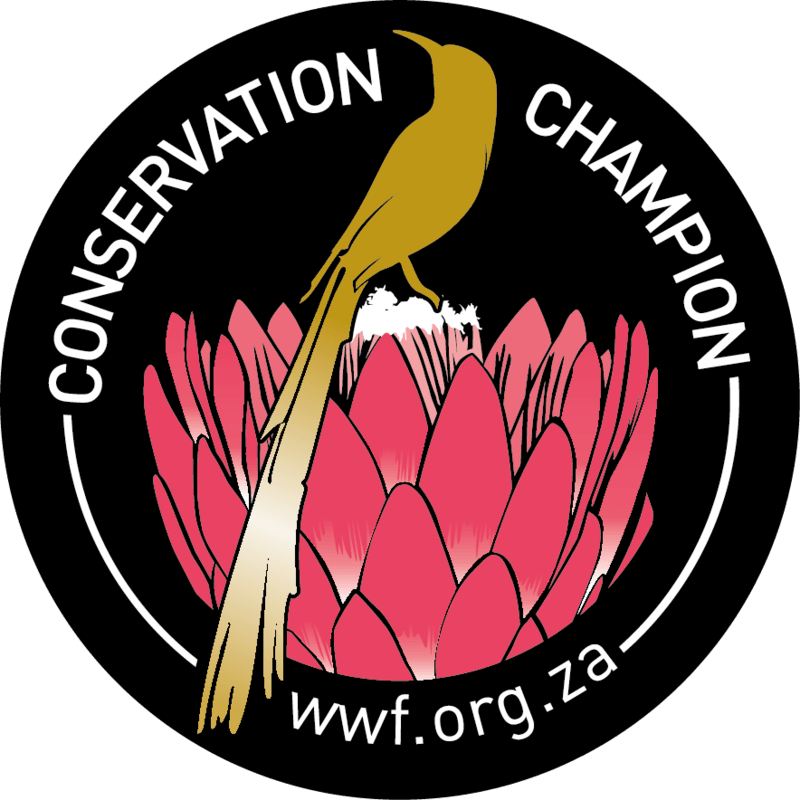
2. Wine & Agricultural Ethical Trading Association (WIETA)
Sustainability must embrace those who work on farms, their livelihoods, their health and their safety.
WIETA is an association that actively promotes ethical trade in the wine industry, and wineries that are WIETA Certified are wine farms that follow fair labour practices.
Vondeling Wines is proudly WIETA Certified and committed to the promotion of ethical trade in the agriculture sector as a whole.
Keep an eye out for the WIETA Certified Fair Labour Practice seal on our bottles!
3. Sustainable Wine South Africa (SWSA)
SWSA is a partnership between the Wine & Spirit Board (WSB), the Integrated Production of Wine (IPW) scheme, and the Wines of South Africa (WOSA) association.
This partnership aims to drive the industry’s commitment to sustainable wine production.
Vondeling Wines is also proudly SWSA Integrity and Sustainability Certified and devoted to conservation and sustainable farming practices in the South African wine industry.
Keep an eye out for this seal on our bottles!
Conservation At Vondeling Wines
Vondeling Wines takes conservation very seriously as it has always been our mission to produce wines in harmony with nature that are both sustainable and of exceptional quality.
Our established vineyards are farmed using a holistic approach along with minimal intervention in the winemaking process, and our commitment to sustainable farming practices has maximised the unique harvest character that we produce every year.
Vondeling Wines is situated within the Cape Floral Kingdom (CFK) and has inherited from the ancient geological history of our area a high variety of soil profiles.
This variety is conserved in numerous ways and allows for an unusually wide range of cultivars to be farmed and sustained on our estate. With 400 hectares of indigenous fynbos on our Paardeberg Mountain slopes, we have also taken a responsible custodian approach to ensure the continued flourishing of our estate’s biodiversity.
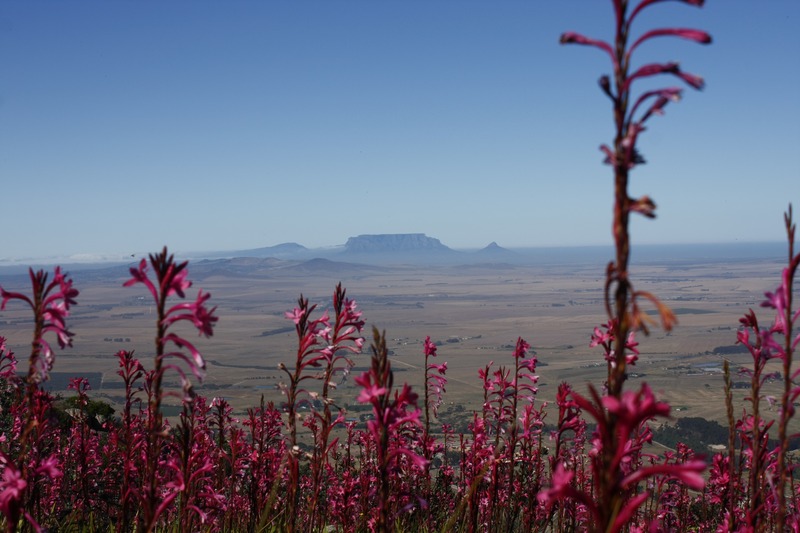
Paardeberg Mountain & Fynbos Flora
Our vineyards span across the slopes and foothills of the Paardeberg Mountain, an area in the CFK that is rich in indigenous fynbos, containing four species that are endemic as well as unique to the area: the Babiana noctiflora, Erica hippuris, Oscularia paardebergenis and Serruria roxberghii.
Several conservation initiatives are active in our area – including the Paardeberg Sustainability Initiative (PSI) which has recorded over 900 different species in over 70 families in the area – and Vondeling Wines is 1 of 50 WWF Conservation Champion Wine Farms that have moved to protect natural resources and ethically farm for the future.
We are actively involved in preserving and protecting our natural heritage.
These efforts manifest in many ways from being a Conservation Champion of the WWF and a proud member of The Paardeberg Sustainability Initiative (established by Dr Bridget Johnsen in 2001) to establishing Cura, a fundraising initiative by Vondeling Wines in partnership with the Wildlife and Environment Society of South Africa (WESSA).
With the above, Vondeling Wines has also sponsored the publication of a coffee table book called Fire To Flower, a publication that materialised following a fire on the Paardeberg Mountain that burnt 75% of its slopes above the farmlands.
As the first fire in 25 years, the fire offered an unmatched opportunity to document and observe the emergent plant species as they germinated and flowered.
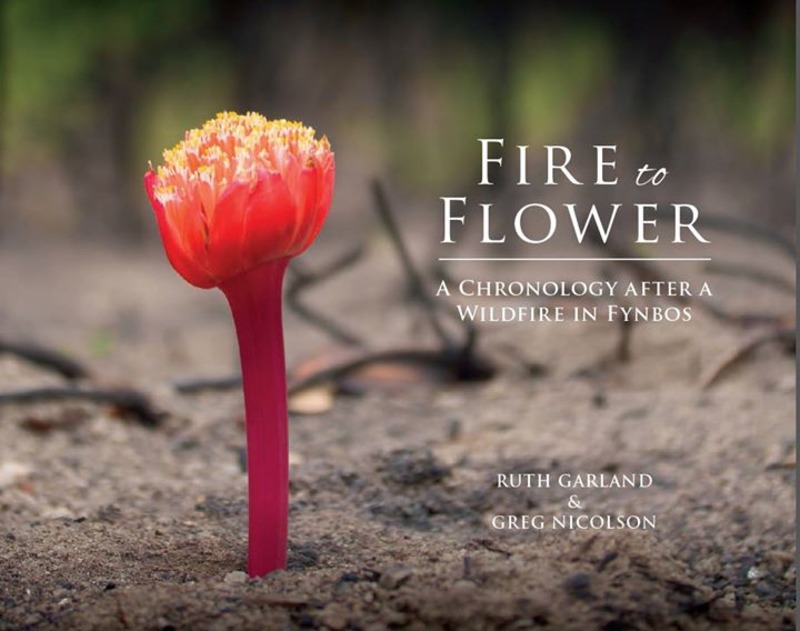
Biodiversity at Vondeling Wines
As a result of our position on the Paardeberg Mountain slopes as well as our wide variety of soil profiles, Vondeling Wines is conscious of our biodiversity and committed to protecting it for generations to come.
As mentioned above, we are a proud supporter of the Biodiversity & Wine Initiative (BWI), a Conservation Champion of the WWF, and a member of the Paardeberg Sustainability Initiative (PSI).
With the support of the WWF and BWI, a strong foundation for wine farms implementing biodiversity-friendly farming practices has been established and together we are dedicated to abiding by these guidelines.
For example, the PSI was established in response to threats to the biodiversity and natural resources of the Paardeberg area.
Therefore, through fundraising for various integrated non-profitable projects, the PSI seeks to promote the area’s sustainability to which we are thrilled to contribute.
As Conservation Champions, we understand that we are recognised as conservational leaders in the South African wine industry, and therefore, we are responsible for ensuring the effective planning of our production practices, integrated environmental management systems, and spearheading innovations in water and energy efficiency and climate change.
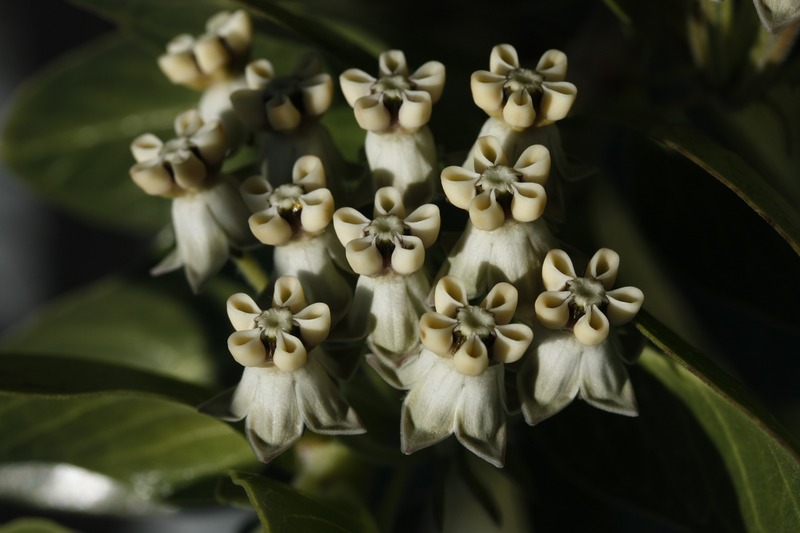
Solar Photovoltaic Systems
As part of Vondeling Wines’ continuous efforts to reduce its carbon footprint through conservation and sustainable farming, we have converted from conventional electricity supply to solar power to minimise the estate’s GHG emissions.
Over 160 solar panels have been installed on our property, providing Vondeling with around 80,200 kWh of energy on average each year.
This means that our main wine cellar, bottle store, tasting room, chapel and all staff accommodations are self-sufficient.
Solar power at Vondeling is currently enough to supply all but our highest electrical needs, which take place during hot days at peak harvest.
Outside of these times (i.e. during winter and over weekends), we are completely green.
Our solar Photovoltaic Systems (PV) therefore substantially reduce our carbon footprint and we have an App that allows us to monitor our usage and the amount of CO2 emissions that we are not pumping back into the atmosphere.
Although we don’t store any of the electricity generated at this stage, we do plan on exporting some soon.
Eskom may have to start paying us for electricity!
Wine Sustainability Efforts at Vondeling Wines
We are proud to have vegan-friendly stickers on our wine bottles and we value sustainable practices in our farming methods as well as within our cellar.
Here are some sustainable practices that Vondeling utilises to cherish our soil profiles and manage vineyard pests in an environmentally-friendly way.
First, we use a mixture of cover crop rather than opting for monocropping at Vondeling Wines.
Cover crop is grown for the protection and enrichment of the soil, meaning that the sole purpose of these plants is to cover the soil and not to be harvested.
Monocropping, on the other hand, is the practice of growing a single crop year after year on the same terrain for harvesting.
This method, however, doesn’t do much for the health and fertility of the soil.
This year for our cover crop, we used a mixture of black oats (saia oats), radish, mustard, vetch and lupines.
Using a variety of plant species is ideal because it enables us to cover a broader spectrum of material when replacing or putting back into our soil what has been used.
Don’t forget that to sustain wine farming over time, soil quality needs to be prioritised and constantly improved for future generations.
The saia oats we use gives our soil tons of green material (green manure), and the radish has a big bulb-like root that helps with the soil’s aeration.
With this, mustard helps to protect against nematodes, vetch provides good ground cover that helps with weed control and moisture retention in the soil, and lupines are a source of nitrogen fixation.
The cover crop we use also keeps the soil alive with added organisms to enhance its sustainability over time.
We understand that our soil does plenty to provide, so we do what we can to give back.
On our almonds, we apply Trichoderma asperellum which is a fungal inoculant for the roots of the plant to protect them against diseases and help with general plant fertility and growth.
We use a fair amount of mulch in the form of Canola bales as well which helps with moisture retention in the soil and weed control, and it builds up soil health and the carbon within it.
Therefore, our grapes are not the only product that we focus on sustaining.
Moisture probes and continuous logging are also methods used to help irrigate an optimum amount of water.
This way we try to eliminate under or over-irrigation, and we try to divert as much of the rainwater as possible into our dams.
All the chemicals we use are target specific and we try to use “soft” chemicals with green labels, not red ones.
At Vondeling, we are proud to put our environment first.
Future-Proofing Our Wine Industry
Biodiversity and forward-thinking are crucial when it comes to future-proofing our wine industry.
Climate change is a major challenge, as previously discussed, but there are ways to work around rising temperatures and unpredictable weather patterns.
Sure, wineries can rethink where they can grow their grapes, but the answer isn’t as simple as moving to higher elevations where temperatures are cooler.
We need to look into innovative ways to farm sustainably and use the years of data that we have to our advantage.
Identifying and planting wine grapes that are resilient to climate change is one method, and so is having a stronger yet environmentally-conscious way of withstanding natural pests.
Using cover crops to give back to the soil and assist with our vines’ ability to adapt to their surroundings is another great method, one which we use, and so too is designing and maintaining wineries with sustainability as paramount in its farming practices.
Sustainable Wine Term FAQ’s
As discussed, it’s important to remember that being a responsible consumer in the wine industry means understanding but also caring about how your wine is produced and where those farms are located.
Here is a list of frequently asked questions about sustainable wine terms and what they mean; it’s up to you to stay informed, so be the change you wish to see!
What does it mean to be a ‘sustainable’ wine farm?
Sustainable wine farms have a positive impact on all social, environmental and economical segments of life.
In essence, these farms have proactive initiatives in place to uplift their community, protect their environment, and ensure ethical trade.
What does it mean to be an ‘eco-friendly’ wine farm?
Eco-friendly wine farms have a positive effect on the environmental segment of life.
These green and nature-conscious farms guarantee minimal to no harm to our planet.
What does it mean to be a ‘carbon-neutral’ wine farm?
Carbon-neutral wine farms have zero carbon footprint.
This means that they limit their CO2 emissions during fermentation and manage their energy consumption responsibly.
What are ‘organic’ wines?
Organic wines are produced using only 100% certified organically grown grapes.
All organic wine is produced without chemical pesticides or fertilisers (guaranteeing both grape and soil health) and it ensures that all wastewater has been efficiently handled.
What are ‘biodynamic’ wines?
Biodynamic wines are produced using organically grown grapes, and this method takes into account all aspects of life including the cycles of the moon and the planets (e.g. planting and harvesting grapes according to the lunar calendar).
Our Final Thoughts
If we continue to be innovative in terms of conservation and sustainability in South Africa, we feel there is a bright future for wine farming.
There are plenty of opportunities to expand in terms of sustainable wine farming, but the quality of one’s product should always be the first priority and that begins with conservation.
Despite the roadblocks in our paths, such as our country’s energy crisis, crime, fuel prices and politics, all can be overcome if we work together both strategically and with sustainability at the forefront of our minds.
Also Read – Wine Pairing Guide by Vondeling

